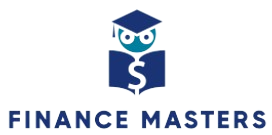As the allure of credit cards often leads to unforeseen debt challenges, this article provides practical tips and effective strategies to navigate and overcome credit card debt in the Philippines. Addressing the unique financial landscape of the country, the article covers budgeting techniques, negotiation with creditors, and debt consolidation options, offering readers a roadmap to regain control of their finances and build a sustainable path toward financial freedom.
Understanding Credit Card Debt in the Philippines
Credit card debt in the Philippines is a pervasive financial challenge that often stems from the convenience and accessibility of credit cards. When individuals use their credit cards for purchases, cash advances, or carry over balances from one billing cycle to another, they may incur high-interest rates. The interest rates on credit cards in the Philippines can be significant, making it crucial for cardholders to manage their credit responsibly.
Credit cards typically offer a grace period during which individuals can pay their balances without incurring interest. However, if the full amount is not paid by the due date, the remaining balance starts accruing interest. This cycle can lead to a gradual accumulation of debt over time, particularly if individuals consistently carry balances forward. The ease of acquiring credit, combined with the allure of deferred payments, contributes to the widespread prevalence of credit card debt in the country.
The Impact of Credit Card Debt on Individuals
Financial Strain Due to High-Interest Rates
The primary impact of credit card debt is the financial strain caused by the imposition of high-interest rates on outstanding balances. With credit cards in the Philippines carrying significant interest rates, individuals who are unable to pay their full balance each month face the rapid accumulation of debt, escalating their financial burden.
Late payments and consistent carrying over of balances negatively impact credit scores. Credit scores play a crucial role in an individual’s financial life, influencing their ability to secure loans, mortgages, or favorable terms for other forms of credit. A lower credit score limits financial opportunities and can affect various aspects of an individual’s financial stability.
Mental Health Struggles
The stress and anxiety associated with mounting credit card debt can take a toll on an individual’s mental health. Constant worry about repayment and the struggle to make ends meet can lead to sleepless nights, increased stress levels, and overall diminished well-being. The psychological burden of feeling trapped in a cycle of debt further compounds these challenges.
Beyond the personal consequences, the widespread prevalence of credit card debt can have broader economic implications. A society with a significant portion of its population burdened by debt may face challenges in economic growth and stability. Therefore, addressing the impact of credit card debt becomes not only crucial for individual financial health but also for the overall economic well-being of the Philippines.
Tips for Avoiding Credit Card Debt
Effectively managing credit card usage is essential for preventing the accumulation of debt. Here are some practical tips to avoid falling into the trap of credit card debt:
- Create a Budget: Establishing a monthly budget is a foundational step in responsible financial management. By categorizing income, tracking expenses, and allocating funds appropriately, individuals can gain a clear understanding of their financial standing and avoid overspending.
- Build an Emergency Fund: Having a dedicated emergency fund provides a financial safety net. This fund helps individuals cover unexpected expenses without resorting to credit cards, thereby reducing the risk of accumulating debt during challenging times.
- Limit Credit Card Usage: Exercise caution and restraint in using credit cards. Reserve their use for essential expenses and avoid making impulsive or non-essential purchases. By adopting a mindful approach to credit card usage, individuals can steer clear of unnecessary debt.
- Pay in Full and On Time: Timely and full payment of credit card balances is crucial. Paying the entire balance within the grace period not only avoids interest charges but also contributes to maintaining a positive credit history. This disciplined approach fosters financial stability in the long run.
By incorporating these tips into their financial habits, individuals can proactively manage their credit card usage, mitigating the risk of falling into the cycle of credit card debt.
Strategies for Dealing with Existing Credit Card Debt
Managing existing credit card debt requires a strategic and disciplined approach. Individuals facing the challenge of accumulated debt can consider the following strategies to regain control of their financial situation:
- Prioritize High-Interest Debt: When dealing with multiple credit cards, prioritize paying off the debt with the highest interest rate first. This approach minimizes the overall interest payments, allowing individuals to make more significant strides in reducing their total debt burden.
- Negotiate with Creditors: Initiate communication with credit card companies to negotiate more favorable terms. In some cases, creditors may be willing to lower interest rates or work out a manageable payment plan. Establishing open communication can lead to mutually beneficial arrangements that ease the burden of debt repayment.
- Debt Consolidation: Explore the option of consolidating multiple credit card debts into a single, lower-interest loan. Debt consolidation simplifies the repayment process by combining various balances into a single monthly payment, potentially reducing the overall interest burden and making it more manageable for individuals to address their debt.
- Seek Professional Advice: Consulting with a financial advisor or credit counseling agency can provide valuable insights and personalized guidance. These professionals can help individuals assess their financial situation, create a realistic repayment plan, and provide strategies for long-term financial stability. Seeking professional advice can be especially beneficial for those struggling to navigate complex debt scenarios.
Implementing these strategies requires commitment and discipline, but they offer viable paths for individuals to take control of their credit card debt and work towards financial freedom. Taking proactive steps and seeking assistance when needed can significantly improve one’s financial outlook.
Government Assistance and Resources
The Philippine government provides various resources and assistance programs to support individuals facing financial difficulties, including those dealing with credit card debt. Here are some key avenues for government assistance:
- Bangko Sentral ng Pilipinas (BSP): The BSP, as the central bank of the Philippines, plays a crucial role in financial education. Through its programs, it aims to enhance the financial literacy of individuals, providing them with the knowledge and skills needed to make informed decisions regarding credit card usage and debt management.
- National Credit Counseling Center (NCCC): The NCCC is a valuable resource for individuals seeking free credit counseling services. They offer guidance on managing debt, budgeting, and developing strategies for financial stability. The NCCC can be instrumental in helping individuals navigate the challenges associated with credit card debt.
- Credit Information Corporation (CIC): The CIC manages credit information in the Philippines and provides credit reports to individuals. Monitoring one’s credit report can offer insights into their financial standing and creditworthiness. Understanding this information is crucial for developing effective strategies to address and improve credit card debt.
Here is a table illustrating examples of government assistance and resources:
| Government Entity | Services Provided | Additional Information |
| Bangko Sentral ng Pilipinas (BSP) | Financial education programs | Workshops, online resources, and publications |
| National Credit Counseling Center | Free credit counseling services | Debt management plans and financial consultations |
| Credit Information Corporation | Credit reports for monitoring credit information | Credit score improvement tips and educational materials |
Individuals can access these resources to enhance their financial knowledge, seek guidance on credit card debt management, and make informed decisions about their financial well-being. Taking advantage of these government initiatives can contribute significantly to individuals’ efforts to address and overcome credit card debt.





